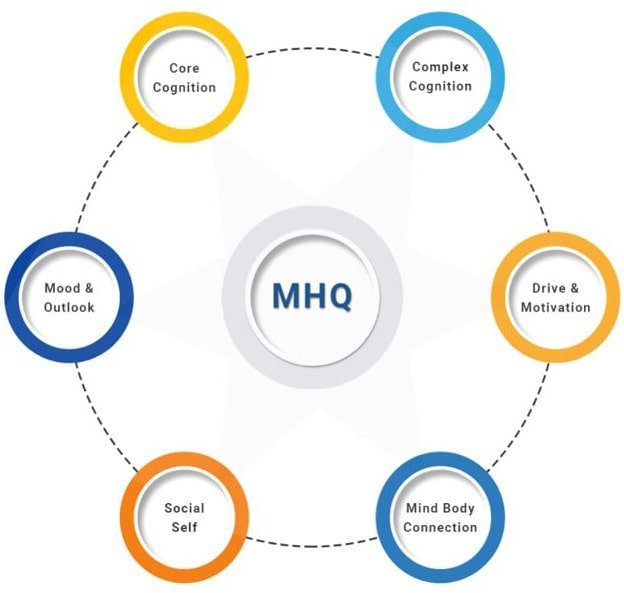The clinical literature around mental health is focused on ‘disorders’. However without an overall understanding of well being, it is difficult to understand when normal turns to disorders. Here we provide a new tool to assess mental well being that will be used across a broad cross section of normal and clinical populations.
Beyond Disorders
Scientific discussions within the clinical and research literature around the topic of mental function and dysfunction typically revolve around the idea of mental health “disorders”. But it’s fair to say that not every moment of distress, or social difficulty that people experience in their daily life warrants labeling as a clinical disorder. Instead, a broader perspective which encompasses the breadth of mental well-being can provide a snapshot of the natural ups and downs of normal life and offer a starting point for identifying opportunities for self-improvement, or a need for intervention.
This focus on “disorders” also means that many of the assessment questionnaires and tools available in the literature are focused around the diagnosis of specific mental health disorders, rather than providing broad insights into mental well-being. However, developing an assessment tool which isn’t disorder-focused has several benefits. For example, it can allow people who don’t suffer from a mental health disorder to get a better idea of where they stand with their general mental well-being so that they can work on areas that need adjustment. And secondly, having a better understanding of the landscape of “normal” well-being can aid our understanding of where the fuzzy boundary between mental health and mental ill-health might really lie.
The Dimensions of Mental Well-being.
But how do you actually measure mental well-being? It isn’t a single entity, but is composed of a multitude of thoughts, feelings and behaviors which span a broad range of mental functioning. It includes everything from cognitive abilities and emotional regulation, through to the perception of self, the nature of our relationships with others and the connection between mind and body. Effective assessments of mental well-being need to capture these multiple aspects. Furthermore, although seemingly positive traits are an asset for some, they can sometimes end up being a problem for others. For example, having high levels of empathy can help someone effectively navigate their social world, but can also become a problem if they are overwhelmed by the negative feelings of those around them. In addition, more is not necessarily better, as shown by traits like confidence where both overly low and overly high confidence can be a problem. Instead, what really matters is its impact on an individual level.
The Mental Health Quotient
 The Mental Health Quotient (MHQ) provides an assessment that encompasses the breadth of your mental well-being and was developed based on a systematic evaluation of over 120 diagnostic tools that span the spectrum of mental health disorders to arrive at a set of broad symptom categories that span all disorders. Symptom categories were then assessed as either traits, that could exist on a spectrum of positive to negative, or problems, that are purely disruptive to life. On this basis the MHQ has 26 traits or spectrum based questions and 21 problem based questions, both on a 9 point scale, and takes approximately 12 minutes to complete. The assessment then provides an overall score as well as scores along six different major categories including core and complex cognition, motivation, mood and outlook, social self and mind-body connection. The tool has been initially tested with a group of 500 people and is now being used for a large scale study to assess well being both in the normal and clinical study. The scoring is nonlinear in nature and considers both symptom consequences and inter-relatedness across categories.
The Mental Health Quotient (MHQ) provides an assessment that encompasses the breadth of your mental well-being and was developed based on a systematic evaluation of over 120 diagnostic tools that span the spectrum of mental health disorders to arrive at a set of broad symptom categories that span all disorders. Symptom categories were then assessed as either traits, that could exist on a spectrum of positive to negative, or problems, that are purely disruptive to life. On this basis the MHQ has 26 traits or spectrum based questions and 21 problem based questions, both on a 9 point scale, and takes approximately 12 minutes to complete. The assessment then provides an overall score as well as scores along six different major categories including core and complex cognition, motivation, mood and outlook, social self and mind-body connection. The tool has been initially tested with a group of 500 people and is now being used for a large scale study to assess well being both in the normal and clinical study. The scoring is nonlinear in nature and considers both symptom consequences and inter-relatedness across categories.
Want to assess your Mental Well-being ?
CLICK HERE to get your MHQ
















